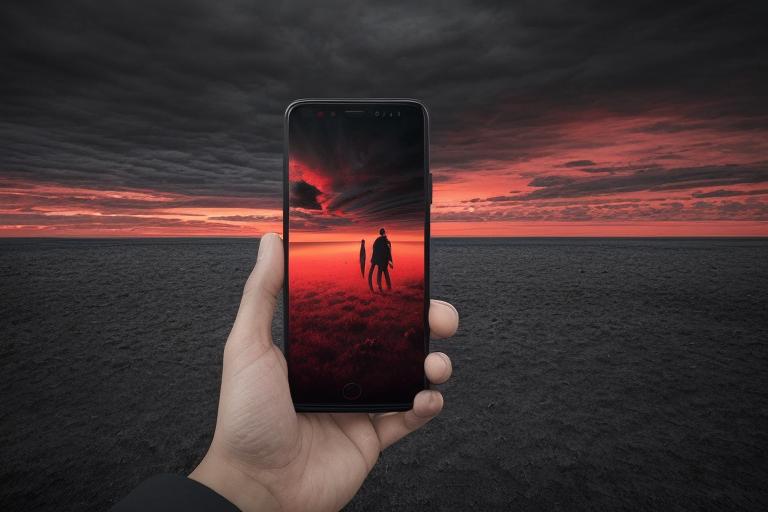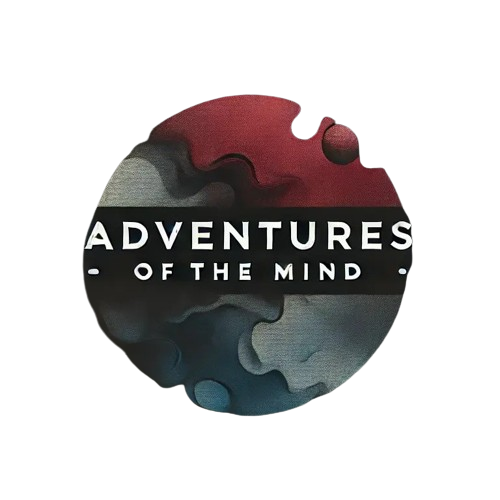Overcome Distraction: A Comprehensive Perspective
Published by Ben Worrall 11th October 2023

One of the greatest roadblocks standing between you and what you want to achieve in life is a pervasive need for distraction, which has come to dominate the working processes of our minds, and the way our societies are structured.
Almost all of you reading this exist in an environment that promotes and facilitates distraction to the point of insanity. Our entire lives are constructed around distraction. This is not hyperbole. I’m not just talking about smartphone addiction.
Distraction keeps us in servitude. It’s the defense we use against confronting ourselves. An escape from the uncomfortable realities that are hidden in plain sight.
My hope is that this article will begin to increase your awareness of the role distraction plays in your life and help you take steps to reduce its influence. But be warned, there’s a reason we distract ourselves; once you see it, there’s a difficulty in unseeing.
What is distraction?
For most of us, distraction is quite simply, a mental addiction.
We are addicted to distracting ourselves because we have nowhere else to turn. We place distraction on a pedestal, and without realizing it, distraction becomes the reason for our existence. We are thrust through time with our hands outstretched, attempting to grasp onto the juiciest distraction in sight. Almost every action we take is motivated by the pursuit of the next distraction.
Distraction is an automatic process influenced by the subconscious. We’re usually not actively choosing to distract ourselves, but distraction happens nonetheless. When you lean into your own experience with distraction, and examine how it operates within yourself, you’ll notice that it almost feels as though it’s something you have to do. When you arrive home after a long day of work, it would be almost physically painful to just sit there in silence for the evening. The TV needs to be turned on, food needs to be consumed, maybe a glass of wine, the phone comes out, your mind is racing over the events of the day.
The first step is to notice how you’re doing this all the time. You’re always trying to escape through distraction. But the question is, what exactly are you trying to escape from?
Why do we distract ourselves?
An answer that immediately comes to mind is boredom. Distraction is an escape from boredom. To a certain extent, this may be true, we generally don’t like feeling bored and we tend to fill our lives with activities to reduce the feeling as much as possible. However, I would suggest that boredom is a symptom for something much deeper. After all, what exactly is boredom? It’s difficult to define, other than it being the craving to do something. A craving for distraction.
Okay then, so maybe distraction is an escape from all the problems in our lives? It’s easier to distract ourselves from our problems than to face them head-on, so we lose ourselves in entertainment, food, and other sources of dopamine which make us feel good in the moment and forget about the issues gnawing away in the background. Again, there’s some truth to this, but I still don’t think we are getting to the rock bottom of the issue. The main reason I say this is that distraction doesn’t just take the form of feel-good, dopamine-releasing activities. We can distract ourselves through work, through conflict, and even by obsessively thinking about our problems. Distraction is everywhere and therefore the things we are trying to distract ourselves from are themselves distractions. Do you see what we’re dealing with here? Distractions within distractions. It’s the Inception of distractions.
So what’s the answer?
Well, I’ve put some time into thinking about this and what I’ve discovered is that we’re trying to escape from being in the present moment.
Why?
We’re scared.
When all the layers are peeled away, there remains a fear, an anxiety, an existential terror. We try to protect ourselves from this uneasy feeling at all costs by pretending it doesn’t exist.
It’s just like the small child who sticks his head under a blanket to escape the gaze of the monster lurking in the shadowy corner of his bedroom. If he doesn’t look at it, then it doesn’t exist. In the same way, this frightening reality is constantly present, waiting for us to acknowledge it, but we dare not, so we keep our minds occupied instead.
The monster lurking in the shadows, while difficult to define, can best be described with the word meaninglessness.
Ultimately, we don’t want to face the meaningless at the center of our lives.
And thus, we have no choice but to invent a false sense of meaning through distraction.
Notice that distraction is a way of denying reality as it is. It’s an avoidance of the bare truth. It’s a closing down. A confinement. A false limitation is placed on the infinite. We do this because the truth is too much to handle, too vast, too scary. To look at it directly would be a form of self-destruction. Most human beings can’t take that level of truth, it would result in the death of the conceptual self. Therefore, we have no choice but to distract ourselves from it. If we begin to notice it seep into our experience, another distraction is there to push it into the background once again.
I understand that I’m being somewhat ambiguous here, but I hope you have an inkling of what I’m trying to say. If a hint of recognition arises within you when I talk about the deep fear that lies beyond distraction, then I’d recommend you spend some time contemplating this feeling. Try to get to the bottom of exactly what this experience is for you and why you’re constantly distracting yourself from it.
Our lives are built around distraction
On a personal level, distraction takes a variety of forms.
There are the obvious distractions. The most destructive and prevalent of which tend to be digital. Spending half an hour scrolling through your Facebook timeline is an obvious distraction. You’re wasting your life with this type of behavior and you know it.
But there are also the less obvious distractions. Take shopping for example. Sure, there’s a purpose to shopping. You get a shiny new toy. And the added dopamine hit that comes free with the purchase. But at the end of the day, shopping is fundamentally a distraction. You’re using it as a way to escape yourself, to escape the present moment.
Our societies are built around distraction. We are told that the point of our lives is to distract ourselves with possessions, relationships, and experiences. Then every system we build is based more or less on facilitating the means to distract ourselves. Often our actions are considered valuable in the eyes of society if they contribute to the flourishing of a distraction. It’s where most of the economic incentives lie.
The culturally encouraged activity of going on vacation is a perfect example of how distraction operates in our lives.
Vacations are great. I love them as much as the next person.
But notice what vacations are.
Notice how you react to the experience of going on vacation.
There’s the build-up, an excitement, you’ve been waiting the whole year to get away. Then when the vacation finally arrives and you find yourself sitting on a beach somewhere, as nice as it is, there’s a subtle emptiness that arises. A horrible feeling of dissatisfaction.
Have you experienced this before?
Once you’re there, and the initial excitement wears off, it becomes increasingly difficult to appreciate just being on vacation. Because just being there requires you to be in the present moment. So what do you do? You turn to other distractions: you open up that mystery novel, you get drunk by the pool, you organize a day trip, and of course, your phone is always there by your side if things become too desperate.
Or the classic, you begin to notice problems everywhere: the weather is too hot, the sea is too cold, the other guests are too noisy, that one waiter is too blunt.

Vacations are just one example. I experience the same thing when I watch a new film at the theatre. I’m a big film fan and I love going out to my local theatre. However, even if I’m watching a film that I’ve been looking forward to for months and I’m enjoying it, I still find there’s a small voice in the background asking:
‘’What am I going to do next?’
‘I wonder if I have any new notifications?’
‘When is this going to end?’
The wanting mind is always looking for its next distraction. This is very human and something all of us face. I’m not pointing it out because it’s wrong. I just want to make you aware of how this phenomenon is operating in all of our lives.
How to overcome distraction?
First, take the problem of distraction seriously. I’ve given you a vivid description of the role distraction plays in our lives, but you need to take the time to pinpoint the unique ways you’re distracting yourself.
As we’ve discovered, distraction dominates our lives. It’s so ingrained into the way we operate in the world that there’s no way we’re suddenly going to overcome all distractions and become modern mystics living continuously in the present moment. This type of distractionless life can be achieved through decades of meditation, mindfulness, contemplation and the like. However, this is not a practical short-term possibility for most people.
Instead, what I’d suggest, is to focus on distracting yourself consciously, rather than unconsciously. The unconscious distractions are what viciously gnaw away at your time and eventually leave you wondering how your life passed by so quickly. Thus, you should prioritise breaking from these chains. Here are some tips to reduce unconscious distraction:
When you become aware of distraction, make a note of the situation and what exactly is going on in your mind at the time. Why did you gravitate towards this distraction at this particular moment? Is there something specific you’re trying to avoid? Or is this a general distraction to avoid the emptiness of the present moment? Getting a sense of your patterns allows you to catch yourself in the act more easily. Then you can train yourself to snap out of it.
Create a powerful vision for your life that can be the driving force behind your day-to-day focus areas and decision-making. One of the biggest reasons why unconscious distractions dominate your life is that you’re not focused enough on how you’re spending your time. Having a clear long-term vision as well as short terms goals is going to be huge for cutting down on distraction as you’re now driven by a sense of purpose.
Permit yourself to use distractions consciously. There’s nothing wrong with relaxing or exploring the pleasures of life. You realize that what you’re doing is a distraction, but you’re choosing to participate anyway, because, well, it’s enjoyable! Counterintuitively, conscious distractions are beneficial to reducing overall distraction because you’re creating a clear distinction between distracted time and non-distracted time. You can adjust the amount of time spent on conscious distractions based on what’s going on in your life. The important thing is you’ve now taken control.
My experience is that developing yourself helps you to naturally drop some of the more shallow distractions over time. Through long-term self-development work, you’re changing your perceptions. What once interested you slowly loses its magnetism. You see through activities that once captivated you. It’s not that there’s anything inherently wrong with them, you’ve just outgrown them. Your attention is now more directed towards higher aspirations.
Life as distraction
As we’ve established, our lives are made up of distraction after distraction. I’d go as far as to say that life is distraction.
When you’re engrossed in your favorite video game, there’s an importance placed on the events of that world. You’re building up your character, you’re collecting resources, you’re in conflict with the environment, and of course, there’s a fear of game over.
But when we take a step back and disconnect our sense of identity from the events of the game, we quickly realize that it’s all just a distraction. It’s all just a game. None of it has any real meaning to the player other than as a mental construct we’ve willingly created for ourselves to enjoy a more immersive experience.
Well, what if we approached life in the same way? What if we saw ourselves as existing as a character in a video game of our own making? Think how different this perspective is from the way normal way people view their lives. How would we approach life if we were able to take on this perspective?
We’d quickly understand that the content of the game, all of it, is just a distraction. Instead of being completely hypnotized by the events in the game, we’d begin to turn our attention to the rules of the game itself. We’d investigate the way the game world has been constructed. We’d explore our inner-workings as the playable character, and ultimately, we’d begin to ask ourselves the question: Why the hell am I in this game in the first place?
This line of thinking is the essence of self-development. It’s what I'm passionate about exploring and teaching. And it’s the only way to completely unwire the power distraction holds over us.
Ben Worrall





